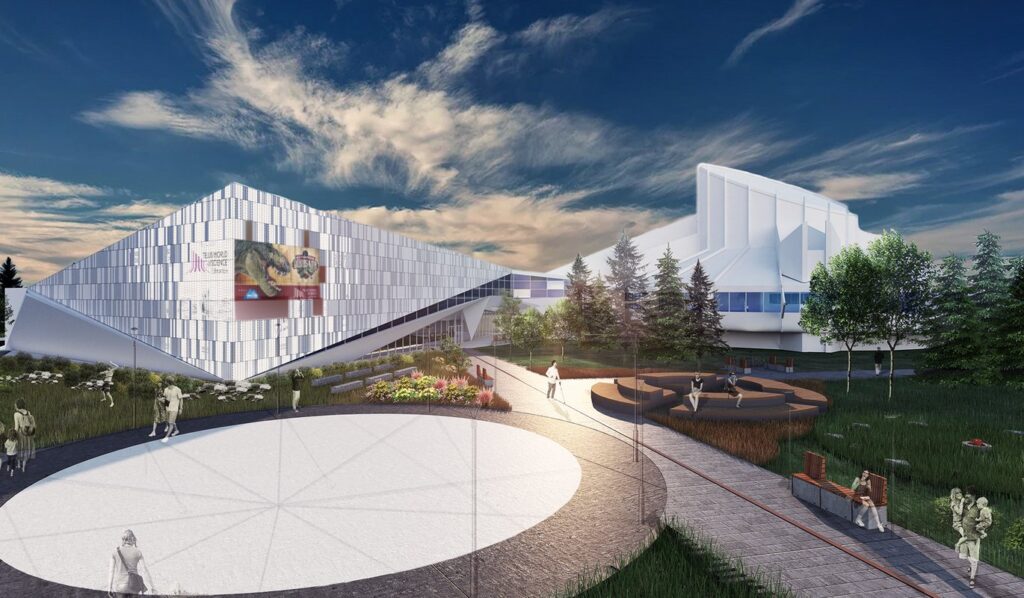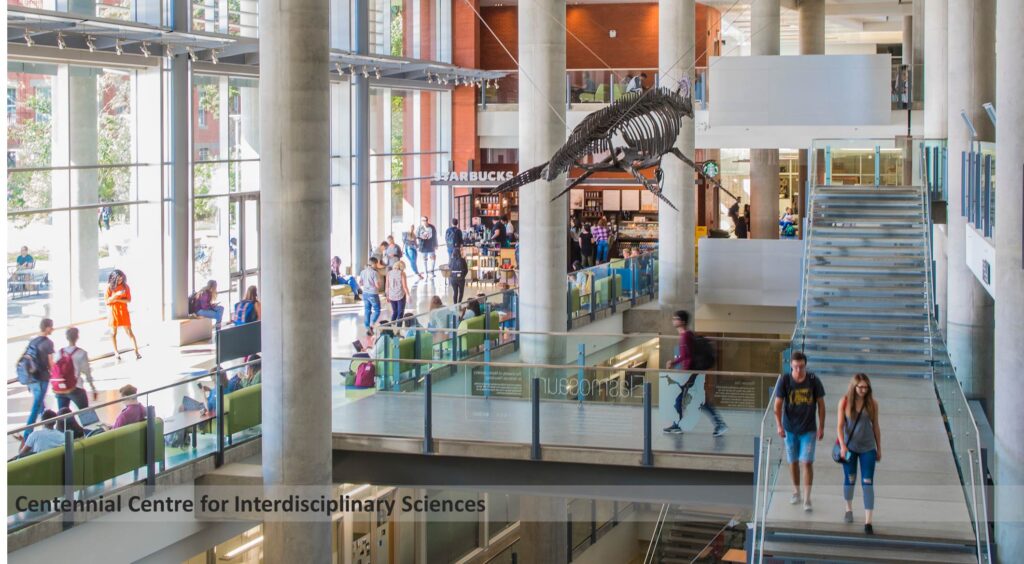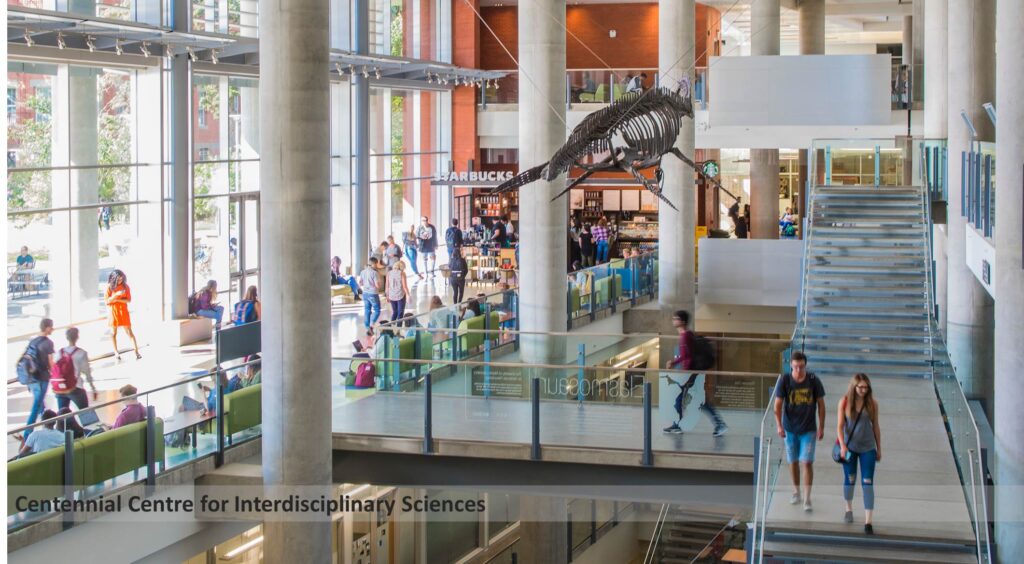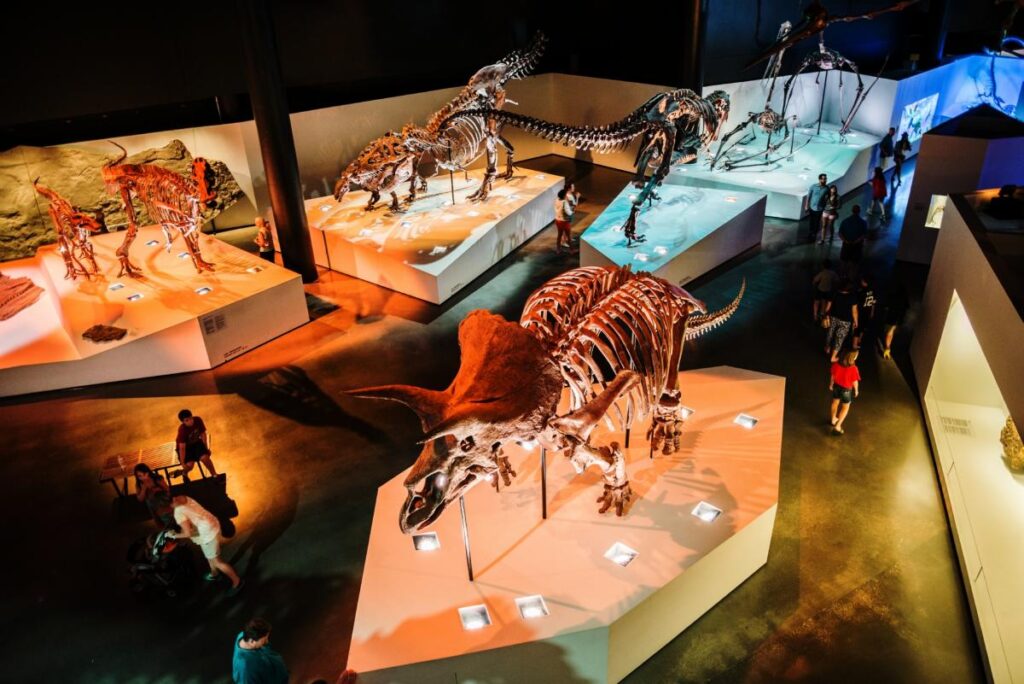Edmonton science centers are some of the city’s most exciting destinations for families, students, and anyone curious about science and technology. These centers offer interactive exhibits, immersive planetarium shows, and engaging educational programs that make learning about the universe, nature, and technology an unforgettable experience. Here’s a closer look at what Edmonton’s science centers have to offer, from hands-on activities and IMAX movies to special events and workshops.
1. TELUS World of Science Edmonton: The Ultimate Science Center
The TELUS World of Science Edmonton is the city’s primary science center, featuring a variety of attractions and exhibits that appeal to all ages. Located in the heart of Edmonton, this center has interactive displays, a state-of-the-art planetarium, and one of the largest IMAX theaters in the area.
Popular Attractions:
- Interactive Exhibits: Visitors can experiment with robotics, anatomy, and engineering concepts through hands-on displays.
- Zeidler Dome Planetarium: A 360-degree planetarium offering shows that take you across the universe, from stars to black holes.
- IMAX Theater: Enjoy educational and nature-themed films on a massive screen with breathtaking visuals and sound.

2. Hands-On Science Exhibits
Edmonton science centers are known for their hands-on science exhibits that make learning about scientific principles an engaging and memorable experience. These interactive setups allow visitors to experiment with everything from robotics and artificial intelligence to physics and chemistry.
Key Hands-On Exhibits:
- The Science Garage: A tinkering and building area where visitors can create, test, and explore.
- Body Fantastic: An exhibit that explains the functions of the human body, including anatomy and physiology.
- The Robotics Lab: Engage in programming and controlling robots to learn the basics of AI and automation.
3. Edmonton’s Planetarium Shows
The Zeidler Dome at TELUS World of Science offers some of the best planetarium shows in Edmonton, providing a breathtaking view of the cosmos and a deeper understanding of space. These shows are highly educational and suitable for all ages.
Planetarium Show Highlights:
- Aurora Lights: Explore the Northern Lights in detail and learn about their scientific significance.
- Cosmic Journey: Travel from Earth to distant galaxies and witness the mysteries of the universe.
- Solar System Safari: A family-friendly tour of our solar system, perfect for younger visitors.

4. Family-Friendly Science Attractions
Science centers in Edmonton are designed to be family-friendly, with exhibits and activities suitable for all ages. Children and adults alike can explore and learn through fun displays, hands-on workshops, and engaging science shows.
Family Attractions:
- Discoveryland: A space dedicated to young children, with age-appropriate science activities.
- Daily Science Demos: Interactive demonstrations on various scientific principles, such as magnetism, chemical reactions, and physics.
- Science Camps and Birthday Parties: Special programs that provide memorable experiences for kids, from birthday celebrations to week-long science camps.
5. Science Education Programs in Edmonton
TELUS World of Science offers science education programs that focus on promoting STEM (science, technology, engineering, and math) among students and the general public. These programs cater to all age groups, providing unique learning experiences and resources for teachers and students alike.
Program Options:
- School Programs: Curriculum-aligned programs that cover topics like chemistry, biology, and physics.
- Public Lectures and Talks: Expert-led sessions that discuss recent scientific findings and global scientific challenges.
- Teacher Resources: Workshops and resources for teachers to incorporate science education into their classrooms.

6. Special Events and Festivals
Edmonton science centers frequently host special events and festivals that focus on various aspects of science, technology, and environmental education. These events provide unique opportunities for visitors to dive deeper into scientific topics while enjoying interactive exhibits and live demonstrations.
Popular Events:
- Dark Matters: An adults-only night with hands-on science activities, drinks, and live music.
- Astronomy Night: Stargazing events at the observatory, with telescopes and expert guides.
- Halloween Science: Seasonal event with spooky science demos and themed exhibits.
7. Edmonton Science Center IMAX Theater
The IMAX theater at TELUS World of Science offers an immersive experience with its larger-than-life screen and state-of-the-art audio. The theater plays a range of films, from wildlife documentaries to space exploration movies, making learning visual and thrilling.
Notable IMAX Films:
- Wild Africa: A journey through African landscapes, featuring diverse wildlife.
- Space Station: A close look at life and research on the International Space Station.
- Oceans: An exploration of marine ecosystems, showcasing the beauty of the underwater world.
8. Science Workshops and Kids Activities
For hands-on learning, science workshops and kids activities are popular at Edmonton science centers. These workshops provide an opportunity to explore scientific concepts in-depth, from chemistry labs to engineering challenges.
Workshop Examples:
- Chemistry Lab: An interactive workshop that demonstrates chemical reactions, safety, and lab techniques.
- Engineering Challenges: Building and testing structures to understand principles of physics and engineering.
- Environmental Science: Focused on sustainability and conservation, helping kids understand the importance of protecting nature.
9. Natural Science Exhibits
TELUS World of Science also features natural science exhibits that highlight Alberta’s unique wildlife, geological features, and ecosystems. From geology to climate change, these exhibits provide a comprehensive understanding of the natural world.
Exhibit Highlights:
- Wild Alberta: Displays featuring Alberta’s native wildlife and ecosystems.
- Geology and Rocks: Learn about minerals, rock formations, and fossils found in Alberta.
- Climate Zone: Discover how climate change affects local and global ecosystems.

Comparison Table: Window Types for Science Buildings and Homes
When designing or renovating science centers, museums, or even homes with views, choosing the right window types can enhance both functionality and aesthetics. Here’s a comparison of popular window types based on energy efficiency, durability, and best use.
| Window Type | Energy Efficiency | Durability | Maintenance | Best Use |
|---|---|---|---|---|
| Double-Hung Windows | Moderate | High | Moderate | Suitable for traditional spaces, providing a classic look |
| Casement Windows | High | High | Low | Ideal for science labs needing ventilation and energy efficiency |
| Sliding Windows | Moderate | High | Low | Practical for large buildings and urban environments with high-rise views |
| Picture Windows | High | High | Low | Best for scenic views, making them ideal for observatories and educational spaces |
| Awning Windows | High | Moderate | Low | Provides ventilation, often used in energy-efficient buildings with rainy climates |
Recommendations:
- Double-Hung Windows: Perfect for more traditional architecture, providing good airflow.
- Casement Windows: Highly energy-efficient, ideal for science buildings needing consistent ventilation.
- Sliding Windows: Low-maintenance and durable, suitable for urban and large spaces.
- Picture Windows: Great for capturing views in observatories and educational spaces.
- Awning Windows: Ideal for maintaining airflow in eco-friendly or rain-prone locations.
Conclusion
Edmonton science centers like TELUS World of Science offer a wealth of educational experiences, from hands-on exhibits and IMAX films to planetarium shows and interactive science workshops. These centers are designed to make learning about science engaging and accessible for visitors of all ages. Whether you’re a family with young children, a student, or a science enthusiast, Edmonton’s science centers provide an unforgettable experience that blends fun with education. And when planning science-related spaces, selecting the right window types can enhance views, energy efficiency, and overall experience, creating an inspiring environment for learning and discovery.
